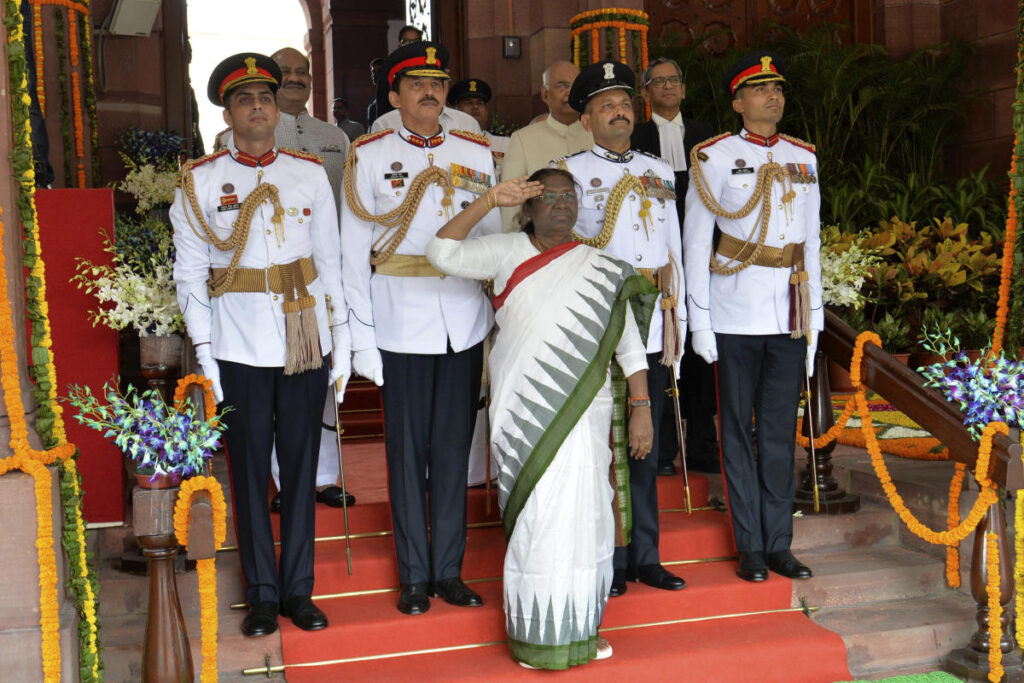NEW DELHI (AP) — India’s president inaugurated a new parliament Thursday after national elections, listing the prime minister’s priorities Narendra Modi’s government in the coming years, including accelerating economic reforms and encouraging small and medium-sized enterprises to create jobs.
President Draupadi Murmu said the Indian economy has grown the fastest among the world’s major countries at an average of 8% over the past four years.
The International Monetary Fund has set India’s growth forecast for 2024-2025 at 6.8%.
Modis government was elected to a record third term despite failing to win a majority on its own. Modi is dependent on his Hindu nationalist party’s coalition partners to rule the country for another five years.
The government will present its budget for 2024-25 next month, outlining its vision to make India a developed country by 2047, Murmu said in an address to lawmakers.
In India, the presidency is largely a ceremonial position and the prime minister rules the country.
The new parliament has some unexpected winners, including Sikh separatist leader Amritpal Singh and Sarabjeet Singh Khalsa, the son of one of the murderers at the time. Prime Minister Indira Gandhi in 1984. They were elected from the northern state of Punjab.
Punjab faced a bloody uprising in the 1980s that led to The assassination of Gandhi by her Sikh bodyguards at her official residence in New Delhi. Her murder sparked bloody riots by her Hindu supporters against Sikhs in northern India.
Another new lawmaker is Sheikh Abdul Rashid from Indian-controlled Kashmir. He was arrested in 2019 on terrorist financing charges and is currently in prison.
Rashid’s Awami Ittehad Party has petitioned a Delhi court to allow him to participate in the swearing-in ceremony in Parliament. Separatist groups have been fighting for Kashmir’s independence or its merger with Pakistan.
In January the government unveiled a short-term budget ahead of elections that boosted spending on infrastructure projects and housing for poor villagers and reduced the budget deficit by cutting subsidies.
The Modi government has announced plans to provide skills to the youth and encourage small and medium enterprises to create jobs. During the election campaign, the country was criticized by the opposition for not creating enough jobs despite offering billions of dollars in subsidies to boost production.
The government plans to build 20 million affordable homes over the next five years, on top of the 30 million already built. The government has allocated $145 billion for infrastructure projects.
The government budget last year was $550 billion and focused on increasing capital spending to stimulate economic growth.
India has attracted $596 billion in foreign direct investment in the last nine years.
Last year, India surpassed the United Kingdom to become the world’s fifth largest economy with a GDP of $3.7 trillion. The government expects the economy to become the third largest in the next three years, with a GDP of $5 trillion.







